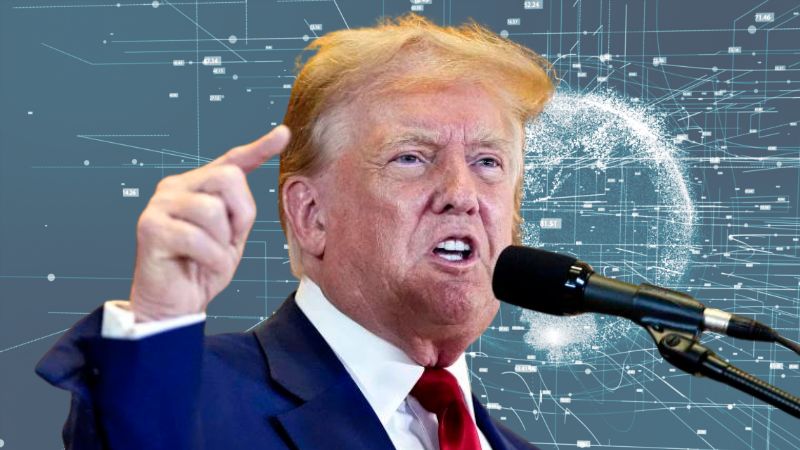Trump Signs New Executive Order to Develop ‘Ideologically Neutral’ AI, Overturning Biden’s Policies

In a recent move that could redefine the American approach to artificial intelligence (AI), President Donald Trump has signed a new executive order.
This directive aims to eliminate previous government measures that, according to the order, stymie American AI innovation.
The newly signed executive order focuses on removing any “ideological bias or engineered social agendas” from AI development, emphasizing the need to foster AI systems that bolster human flourishing, economic competitiveness, and national security.
The order explicitly targets policies from the former administration under President Joe Biden.
Trump’s administration contends that Biden’s 2023 executive order on AI imposed restrictive regulations that hampered the private sector’s freedom to innovate and maintain American technological superiority.
Notably, just days after reassuming office, Trump rescinded Biden’s policies, which had introduced strict guidelines aimed at ensuring AI tools did not result in public harm.
These guidelines affected everything from medical diagnostic AI to facial recognition technologies.
Trump has not specified which of Biden’s AI policies are being overturned but has initiated a comprehensive review to amend or suspend any holdovers that do not align with the new directive.
The order mandates a fresh set of guidelines to be drafted, which will redefine how agencies adopt and deploy AI technologies.
David Sacks, a former PayPal executive turned venture capitalist, has been appointed as the new Special Advisor for AI and Crypto.
Sacks will lead a select group of White House tech and science officials in crafting an AI action plan due in 180 days.
Critics of the new order, like Alondra Nelson, former acting director of the White House Office of Science and Technology Policy under Biden, have expressed concerns.
Nelson described Trump’s directive as “backward looking,” potentially unraveling initiatives that benefit the public.
In contrast, supporters like Eric Gastfriend, executive director of Americans for Responsible Innovation, argue that Trump’s order sets the stage for a more aggressive American stance in global AI innovation.
This shift reflects Trump’s broader campaign promises and the influence of advisors like Elon Musk, who have voiced concerns over AI systems that embody particular ideological leanings.
As the administration moves forward with its new AI strategy, the impact on both the technological landscape and the broader societal implications remains to be seen.
